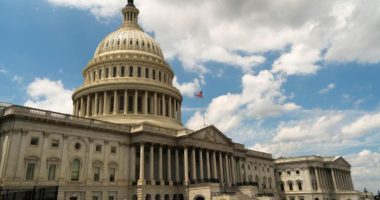 This letter came in response to my column on Medicare for all in March. It is important to hear from all our members. The College encourages your thoughts on all issues important to the allergist.
This letter came in response to my column on Medicare for all in March. It is important to hear from all our members. The College encourages your thoughts on all issues important to the allergist.
– Michael Blaiss, MD, FACAAI, executive medical director
Dear Dr. Blaiss,
I read your editorial of March 4, 2019 with great interest. Thank you for sharing your insights. I would like to offer some alternative viewpoints. They are as follows:
- “As residents of the U.S., every citizen should be covered for all medically necessary services…” This is a false assertion, in my opinion. Not every person should be covered for all necessary health services. Patients should have access to these services, but there is no reason why a person should have another entity pay for something as minor as a bottle of Motrin or a simple X-ray. In fact, for most Americans, dental services are paid out of pocket and this works very well. We do not have a country of terrible teeth compared to other countries because these services are not covered. Patients should be able to pay for their office visits without the need for additional help from insurance.
- “I believe that health care is a right for all of us.” Health care is not a right. It is a service. Making it a right would force those who provide this service to give it without their consent or approval. This is slavery. I obviously don’t believe you agree with slavery. I believe a better approach to this issue is to state that all patients have a right to the opportunity of receiving health care.
- “Over 500 billion dollars in administrative savings would be realized… with a single streamlined, nonprofit, public payer.” This statistic is often cited but is not based on the real cost of the care. This is based upon the supposedly low administrative fees of running Medicare or Medicaid programs. This alleged cost saving does not include the cost the government incurs in obtaining taxes from Americans (including the vast bureaucracy of the IRS to run these programs). Countries with single payer health systems have huge bureaucracies and often the cost of that health care is, in actuality, extremely high. This leads to government rationing. When people are spending money other than their own, they tend to spend it inappropriately. Just look at your state and federal government for plenty of examples. Emergency rooms do not tend to be filled with uninsured non-paying patients. Rather, emergency room patients tend to be skewed toward the government sponsored non-paying patient.
- You state that slashing the “middle man” would decrease health care costs. However, in a single payer system, there is definitely no erasing the middle man. The middle man is the government. The middle man, the government, is between the patient and the doctor. In the state of Michigan, we have seen what state Medicaid programs have done for Michigan residents. They have rationed health care by obstructing the ability of physicians to have procedures, medications and other care authorized for payment by these programs. Although you argue that commercial health insurers do the same, they pale in comparison to the obstruction of Medicaid program administrators.
- The delusion of single payer has been realized in many countries for many years. We see the disaster of the National Health Service in Great Britain. I recently had a cousin, an orthopedic surgeon, move from Wales to Switzerland. In Wales, he worked 2 ½ days per week and he chuckled that he was making as much money as I did per hour worked. I stated that that was most likely the case. The big difference is that I am able to see at least four times the number of patients of an NHS doctor per day offering the same or better care for these patients. Is this not cost effective? Which system really costs more money? Eventually, he became weary of his clinical skills being wasted. He moved to Switzerland and opened up a private solo practice!
- As economist Avik Roy has pointed out, outcomes for patients in Medicaid programs in the United States are significantly worse than for patients who are not on Medicaid. Why would we want all of us to be part of this?
- In a country where our Federal Government debt is now over 22 trillion dollars, how in the world would we desire a bankrupt organization to take care of our health care needs?
Thank you for time. I appreciate your insights. Hopefully, we will not go to single payer in this country. Rather, we should go to many payers, i.e., millions of payers. Getting rid of the middle men (who get in the middle of the doctor/patient relationship) in this country, which include big government, big insurance, big hospital and big pharmaceutical, should be the goal of all involved in health care policy making. In the current discussion of the health care economy in the U.S., two entities are not at the table: the patients and the physicians. Patients and physicians can and must retake their rightful roles as the ultimate authorities of health care.
Sincerely,
Martin S. Dubravec, MD, FACAAI
Cadillac, MI


